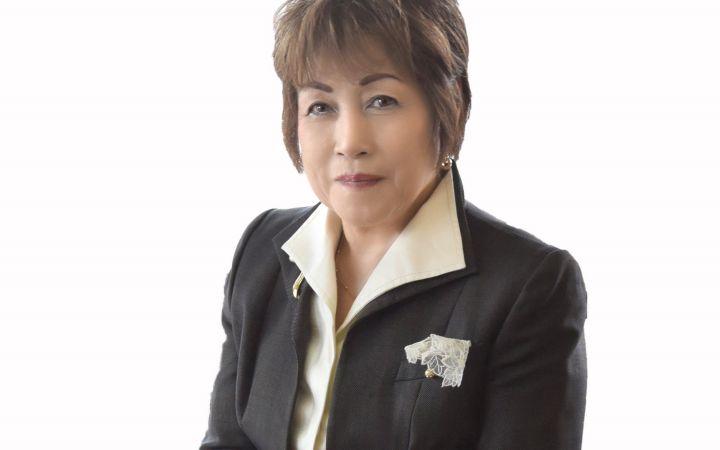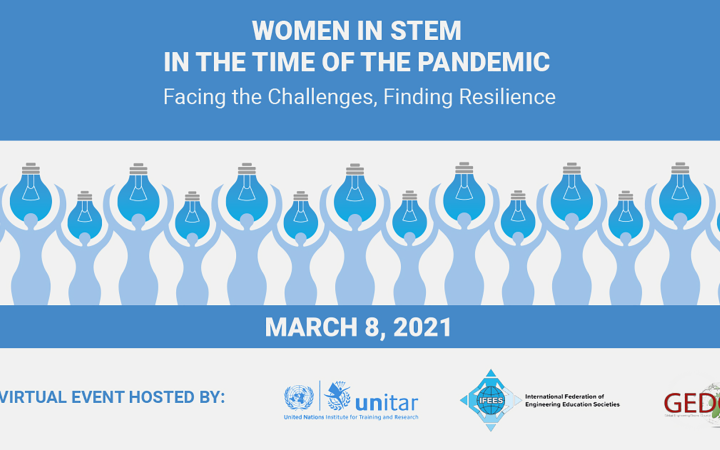24 February 2021, Hiroshima, Japan - UNITAR Hiroshima and the UNITAR Association will co-host “The Japanese perspective on gender”, the ninth in its public discussion series, Ideas That Matter. The inclusion of women’s experiences, perspectives and services is crucial for effective decision-making, policy development, and legislation that serves all people. It is a pillar of Sustainable Development Goal (SDG) 5 on Gender Equality: “ensure women’s full and effective participation and equal opportunities for leadership at all levels of decision-making in political, economic and public life”.
But in its most recent report, the World Economic Forum ranks Japan 121st in the worldwide gender gap index in 2020. The main factor behind this dismal result is the low proportion of women who are working at a high management level in political and economic fields.
Leading the evening’s discussion will be Professor Midori Ueda of Hiroshima University of Economics, who will share her own experiences and views on women’s and men’s leadership in society and how she has successfully secured senior positions in academia and in non-profit organizations.
This free event will be held Monday, 8 March 2021, 18:00-19:00 JST. For more information and to register: https://www.unitar-a.jp/9th-itm-international-womens-day/ (in Japanese).
As part of its celebration, UNITAR Division of Prosperity will also co-host a daylong, virtual conference titled Women in STEM in Time of the Pandemic – Facing Challenges, Finding Resilience. Produced in partnership with the International Federation of Engineering Education Societies (IFEES), and the Global Engineering Deans Council (GEDC), this global conference will highlight the challenges and opportunities for women in STEM (science, technology, economics and mathematics) arising from the COVID-19 pandemic.
Gender equality and the empowerment of women is a key component of the SDGs. It is addressed specifically through SDG5 but is a cross-cutting issue through the other 16 goals. Yet, progress has been slow in many sectors, including STEM. According to UN Women, only 30 per cent of researchers worldwide are women, and only 35 per cent of all students enrolled in STEM-related fields of study are women. Also, recent studies have found that women in STEM fields publish less, are paid less for their research, and do not progress as far as men in their careers. STEM fields are a foundation to shaping our future: with digitalization and science playing a key role in this time of the COVID-19 pandemic, ensuring gender equality in STEM has never been more vital.
Today, the pandemic is affecting women worldwide, presenting a multitude of challenges in their everyday lives. Women in STEM face additional challenges such as precarious working conditions and maintaining work-life balance. But as we know, women are also change-makers. Women working in STEM are using their knowledge, experiences, and networks to find new opportunities and create new spaces for innovation in their fields.
The virtual conference will explore how COVID-19 has affected gender equality and women’s empowerment in both positive and negative ways. It will present a unique platform for leaders and change-makers from diverse backgrounds – women and men, senior and youth, diverse nationalities – in STEM to come together and share their experiences and perspectives on the pandemic and its impact on women working in STEM, to help shape the future of this critical field.
For more information and to register: https://www.gedcouncil.org/women-in-stem-in-the-time-of-the-pandemic/
Finally, as part of its partnership with micro-learning platform EdApp, UNITAR Prosperity is offering free programmes designed to provide essential skills in entrepreneurship and disaster risk management.
In the course “Women’s Entrepreneurship,” users will explore the unique challenges women face in starting and running their own business and how they overcome these constraints.
Disasters disproportionately affect women. In “The Importance of Women in Disasters,” we look at the ways women are affected and how including more women leaders in addressing disaster risk reduction improves outcomes for all.
Both programmes are offered as part of Educate All, a collaborative effort between UNITAR and EdApp designed to democratize and increase access to free, high-quality adult education.
#ChooseToChallenge #IWD2021 #KnowledgeToLead #SDGs



